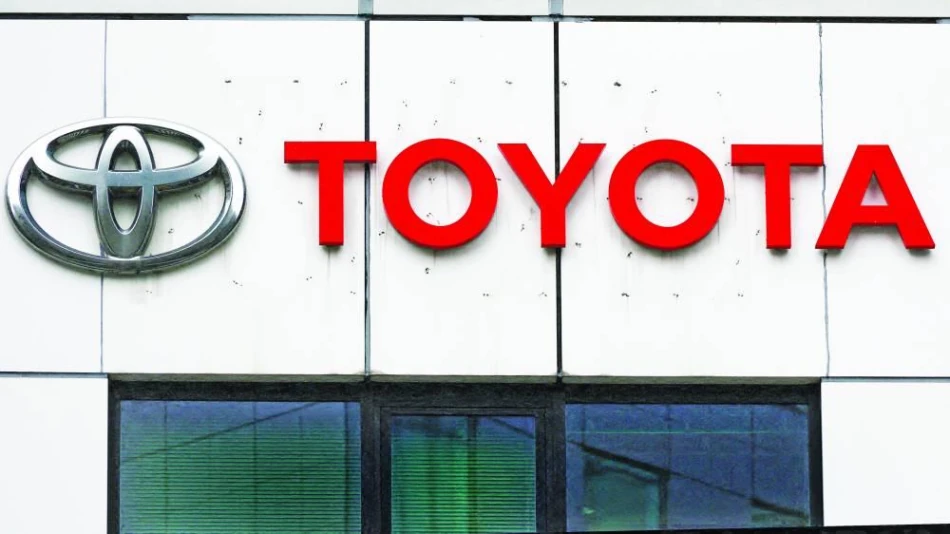
Toyota Delivers 900,000 Vehicles in Record-Breaking August Sales
Toyota's record-breaking sales streak hit a wall in August as a sharp drop in its home market of Japan offset steady growth in China and North America. The world's largest automaker saw global sales rise just over 1% compared to last year, marking a significant slowdown from months of double-digit growth.
The Japanese giant sold 900,598 vehicles worldwide in August, including sales from subsidiaries Daihatsu Motor and Hino Motors. While overseas sales climbed nearly 4% to hit an all-time monthly high, domestic Japanese sales plummeted more than 10%.
This split tells a story of two different markets. In the United States, Toyota and Lexus sales jumped 14% as American buyers continued embracing hybrid vehicles. But back home in Japan, sales dropped 12% as local demand weakened.
The company's electric vehicle push showed mixed results. Battery-powered car sales surged 35% globally to 17,056 units, but Japan bought just 18 of those vehicles. This highlights how Toyota's EV strategy is finding more success abroad than at home, where the company pioneered hybrid technology decades ago.
Toyota had been on a remarkable run, manufacturing and selling record numbers of vehicles for seven straight months. The company benefited from renewed interest in gas-electric hybrid cars as consumers looked for fuel-efficient options without fully committing to pure electric vehicles.
But the broader economic picture looks challenging. In August, Toyota cut its annual profit forecast, warning that Trump's 15% tariffs could slash earnings by 1.4 trillion yen ($9.5 billion). The company now expects operating income of 3.2 trillion yen for the fiscal year ending March 2026, down from its initial projection of 3.8 trillion yen.
Global production still managed to grow about 4% to 837,869 units, showing Toyota's manufacturing network remains resilient despite trade tensions and market fluctuations. The question now is whether the company can reignite growth in Japan while navigating tariff pressures that could reshape its global strategy.
Most Viewed News

 Omar Rahman
Omar Rahman






